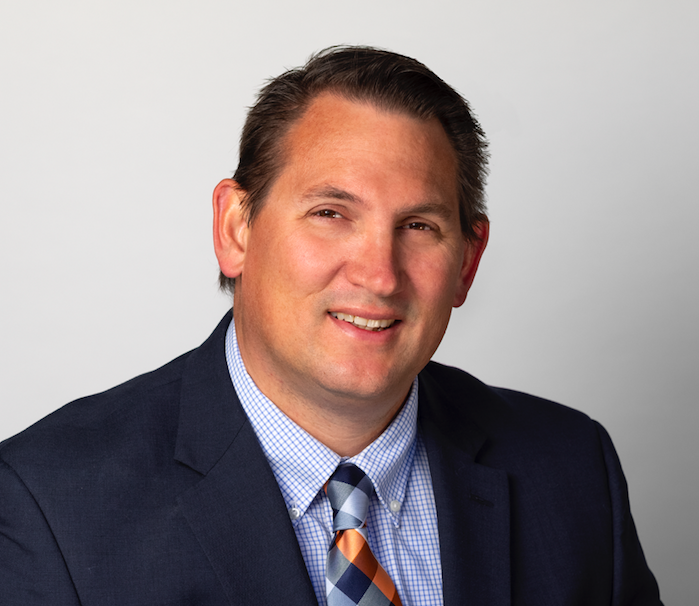After deepening its commitment to the community—and becoming part of the Satell Institute—Becker’s School Supplies is seeing an impact internally and externally.
* * *
It was a couple of years ago, Louis Becker says, when he was an invited guest at one of the Satell Institute’s Private CEO Conferences, that he had a “light bulb” moment. Or maybe it was a couple of light bulb moments. Corporate Social Responsibility was already on Becker’s mind, but as he sat in the Franklin Institute listening to the conference’s CEO speakers, he was struck by two things. First was the impact that businesses can have, internally and externally, when they give back to their own communities. Second was the transformative power that multi-year gifts—a Satell Institute requirement—can have on the nonprofit organizations that do vital work in those communities.
One reason both of those points rang true? Because the company that Becker leads, New Jersey-based Becker’s School Supplies, has been around for 94 years. It’s an organization that understands both being part of your community — and long-term thinking.
Today, Becker’s School Supplies is a proud member of the Satell Institute, supporting Cristo Rey Philadelphia High School. Here, Louis Becker talks about the secret to his company’s success, the benefits businesses get when they give back, and the CSR journey that’s helping to reinvent a nearly century-old business.
Becker’s School Supplies is…
…a third- and fourth-generation, family-owned-and-operated business. My grandfather started it in 1928. I’m actually the second youngest of the third generation. My father was the youngest in his family— the youngest of nine. So we have a pretty large, extensive family business.
We have about 70 employees right now. We were predominantly in the Catholic school market, but about 30 years ago, we got more involved in the early-childhood market, where we partner with some pretty large organizations.
“What makes you a success?”…
… is a question I get a lot. Because anybody can buy our products anywhere. You can get composition books anywhere. You can get crayons and markers anywhere. But what’s always kept us thriving is our dedication to the market and our customer service. We really have a value-driven, unparalleled customer-service approach. We’ve always been that way, and it’s not just people who work here who have the last name Becker. It’s the whole culture of the company.
We truly believe people buy from people. We developed long-term relationships with organizations, so it’s a trust thing. It’s kept us busy for many years, and hopefully for many, many more years.
Our commitment to CSR really began to deepen…
… a little more than two years ago. We’re a 94-year-old business. I’m not saying we’re reinventing ourselves, but we’re really making more of a conscious effort to be part of our community, and to do so in collaboration with our employees. We were redoing our purpose, our vision, our mission and our values.
We started off by giving days off for people to volunteer at a nonprofit of their choice. Our success rate – people taking advantage of it – was huge. It wasn’t like, “I’m gonna take the day off and pretend that I’m going to a soup kitchen.” People were actually doing it, and the feedback was great.
That led into, how are we spending on a business level, how are we making our contribution outward? And can we do something more effective that would benefit a greater pool of people? It was just constant buy-in from the employees up to the management level.
CSR is more important than ever to employees because…
…you’re starting to see it more in the younger generation that’s coming in. They want to be part of companies that give back. But once you mix that generation with an older, middle-age group, it starts resonating with everybody. It’s not as much about “What can I do here at work?” It’s, “What can we do as a group, and what can we effect?”
I was introduced to the Satell Institute…
…when I was invited to a CEO Conference a couple of years ago. I was wowed. How we were giving back was something that was on the mind of our company, so the conference just resonated.
Going to the CEO conference, and actually listening to the guest speakers and sitting at the CEO roundtable and talking with people, it resonated because of how close everything is—when you focus on your backyard, you can really have an impact.
It’s important for us to be part of the community because…
…being an educational supplier, that’s part of our mission – to develop a place for teachers, parents and students to thrive. There are so many nonprofit organizations out there that have great missions. How can we take our resources and really put them to work? Once you start looking locally, you see where the opportunities are to partner.
The Satell Institute’s required four-year-commitment…
… was a light bulb for me when I was sitting in the CEO conference in the Franklin Institute. When I brought that idea back to my management team, they were like, yeah, we all have budgets. It really resonated. Any organization will take $25,000, don’t get me wrong. But to know that there’s a commitment of four years allows them to plan to do something. It not only hit me in the head like a hammer, but also my team.
We chose Cristo Rey Philadelphia High School as our Nonprofit Affiliate …
…because we’re in the world of education. Education goes beyond just the four walls. It’s a parental thing, it’s a neighborhood thing, it’s a community thing. It’s everything. When you listen to Cristo Rey’s story about who they cater to, it’s like, man, how can you not want to support them? They make opportunity available, which is great.
When it comes to CSR…
…we’re not a really showy type of company about what we do. We try and do what we say we do. I think Corporate Social Responsibility is the right thing to do. Especially being local.
The Satell Institute’s support model…
…makes so much sense. It’s real, its genuine, it’s really effective.


